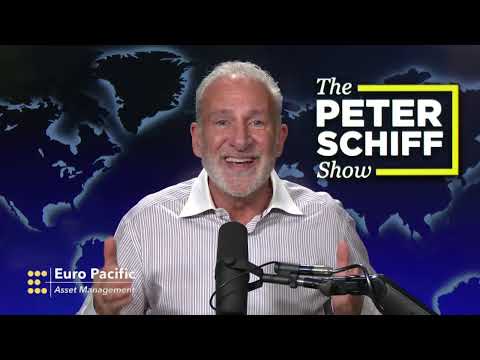November 25, 2025
On Wednesday's episode of the Peter Schiff Show, Peter returns to his show to walk listeners through what he sees as multiple asset bubbles and why those bubbles matter beyond headline market moves. He calls out the AI stock mania, a fragile housing market propped up by policy, and the crypto circus - all potential bubbles inflated by easy money.
He opens by framing the broader problem: we don't just have one overheating market, we have many, and policy choices make their unwinding more dangerous:
The bigger question is not just whether or not this is a precursor for other bubbles to pop because there are a lot of bubbles. We have a bubble in AI stocks and I'll talk about that too. On this podcast, we got Nvidia earnings out after the close today, but we have the AI bubble. There's a bubble in housing, which, you know, the government is really trying to prevent from deflating, which of course they need to allow it to deflate, but they're afraid of what might happen.
Peter is careful to separate hype from technological promise - he believes AI could genuinely reshape productivity and living standards - but warns that enthusiasm is fueling speculative excess rather than sober investment:
When I talk about an AI bubble, I am not saying that there isn't potential in artificial intelligence. In fact, I think there's tremendous potential. I think there's probably more potential there than in anything I've seen, which would include the internet, which had a lot of potential. I think that AI could be the most transformative invention as far as lifting the standard of living of all of humanity.
Shifting from tech to crypto, Peter points to recent price action as evidence that much of the Bitcoin story is built on air - a sharp drawdown is "a pretty big bear market in nothing," and he prefers measuring crypto's value relative to gold rather than dollars:
Earlier this afternoon, Bitcoin traded below 88,500. Now, of course, that's still a ridiculously high price to pay for nothing, but it's about 30% below what you had to pay for nothing a couple of months ago. All right. So that is a pretty big bear market in nothing; Bitcoin down 30%. In terms of gold, which again is a better way to measure the price of Bitcoin, because after all Bitcoin is marketed as being digital gold, as being an alternative to gold that is going to replace gold because it's better than gold.
Ironically, Peter says, the one real constructive outcome from the crypto craze could be greater utility for actual money: tokenized gold. If blockchain tech makes gold more liquid and transferable, that can strengthen gold's role rather than replace it - because tokens are only as meaningful as the asset backing them:
Ironically, the one thing that might come out of the whole crypto bubble is tokenized gold. Gold may be the only real winner. Rather than killing gold, blockchain may have just given it a new lease on life by making gold even more efficient than it's ever been as a means of exchange, making it more liquid, making it more divisible, making it more portable. All the characteristics that people think Bitcoin has that are better than gold are worthless without the underlying value of gold.
Finally, Peter reads the Fed's recent comments as dangerously complacent. He notes that members of the FOMC (Federal Open Market Committee) appeared to downplay inflation risks tied to tariffs, suggesting any price increases from trade barriers may be temporary - even as tariff policy changes are being used politically to try to cool prices:
I thought what was significant, and it should have produced a bigger reaction, but it did not, was that the FOMC members seem to believe that the inflation threat that they thought may have come from tariffs isn't there. And to the extent that prices are higher, that it's not, you know, a permanent thing, that it's like a one and done situation. And of course, Trump has been rolling back more tariffs recently, a lot of items.
This article was originally published on SchiffGold.com.
